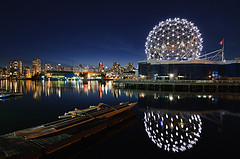Hunter Cowles 183 Words
hc17@geneseo.edu
105-19 INTD: Science Writing
In Kim Tingley’s article, “Whisper of Wild”, she discusses how the acoustic integrity of nature has been destroyed by human inventions such as roads, planes, and railroads. The astonishing aspect of this article that one can even hear the noise of transportation over the sound of runoff from the snow from icecaps and mountains. In Leornardo Dicaprio’s National Geographic documentary “Before the Flood”, the impact of emissions from vehicles has a significant impact on our planets climate change. While he was filming his blockbuster movie, The Revenant, the film crew had to relocate all the way across the planet because their original set (which was located in northern Canada) all the ice melted. In the coming years, the sounds of our cars will be drained out by the roaring currents of the run-off. We all need to be be increasingly more conscientious of our human footprint and start investing in alternative forms of energy. The noises we hear in nature will be a relatively trivial issue if there is no nature to return to in the beginning.
